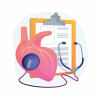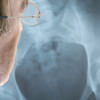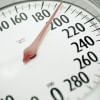Even low physical activity reduces cardiovascular risk in seniors

New European research has found that when it comes to exercising in our senior years, something is better than nothing for reducing the risk of cardiovascular disease.
Carried out by the Academic Medical Centre, Amsterdam, the Netherlands, the 18-year study looked at 24,502 adults aged 39 to 79 years to compare the association between different levels of physical activity and the risk of cardiovascular disease in elderly to middle-aged individuals.
"We know that regular physical activity has major health benefits," said first author Dr. Sangeeta Lachman, "Healthy adults are advised to do at least 150 minutes a week of moderate intensity or 75 minutes a week of vigorous intensity aerobic exercise to reduce their risk of cardiovascular disease." However she added that, "These recommendations are based primarily on research in middle-aged adults and we wanted to know whether regular physical activity yields comparable cardiovascular health benefits in elderly people."
Upon enrollment, participants were asked to complete a health and lifestyle questionnaire, complete a standardized physical examination, and give blood samples.
Physical activity during work and leisure time was also assessed by a questionnaire, with participants then categorized as active, moderately active, moderately inactive and inactive.
During the median follow-up of 18 years, the team found that there was an inverse association between physical activity and the risk of cardiovascular disease in both elderly and middle-aged people.
The team also found that even just a small amount of activity had benefits, with elderly people who were moderately inactive showing a 14% reduced risk of cardiovascular events compared to those who were completely inactive.
"This suggests that even modest levels of physical activity are beneficial to heart health," commented Dr Lachman. "Elderly people should be encouraged to at least do low intensity physical activities such as walking, gardening, and housework."
"Given our aging population and the impact of cardiovascular disease on society, a broader array of public health programmes are needed to help elderly people engage in any physical activity of any level and avoid being completely sedentary," she concluded.
The results can be found published online in the European Journal of Preventive Cardiology.

 For all latest news, follow The Daily Star's Google News channel.
For all latest news, follow The Daily Star's Google News channel. 








Comments